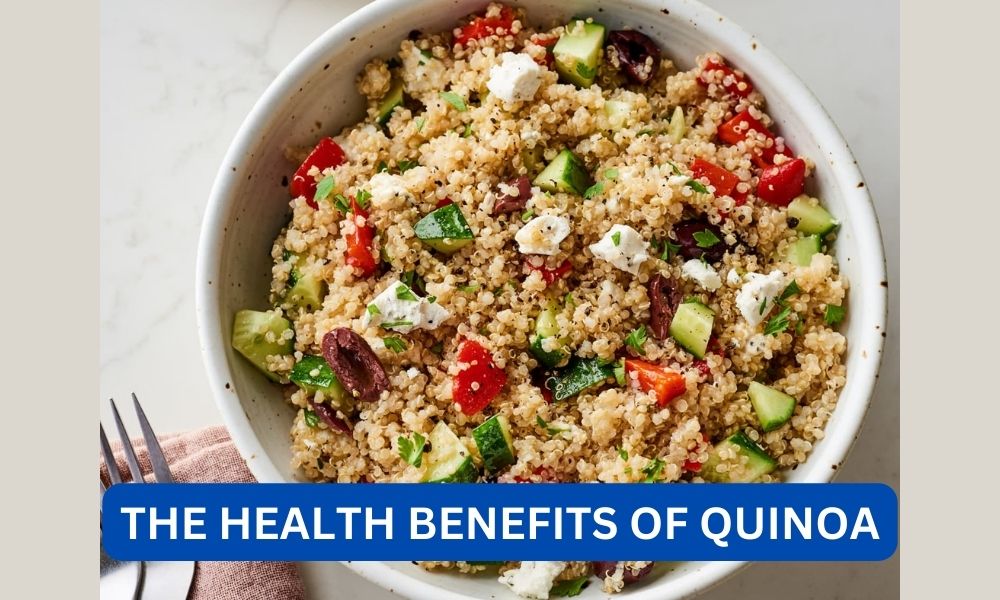Quinoa, pronounced as “keen-wah,” has been gaining popularity in recent years as a superfood. It is a gluten-free, whole grain that is packed with essential nutrients and has numerous health benefits. This ancient grain has been cultivated for thousands of years in the Andean region of South America and has been a staple food for the Incas. However, it is only in the last decade that quinoa has gained global recognition and has become a popular choice for health-conscious individuals. In this article, we will explore the health benefits of quinoa and why it should be a part of your diet.
What is Quinoa?
Quinoa is a pseudocereal, which means it is not a grass like wheat or rice, but its seeds can be ground into flour and used to make bread, pasta, and other foods. It is a member of the Amaranthaceae family and is closely related to spinach, beets, and chard. Quinoa is often referred to as a “superfood” because of its high nutritional value and health benefits.
The quinoa plant is about 3 to 9 feet tall and has broad, green leaves. It produces small, edible seeds that come in different colors, including white, red, and black. The seeds have a slightly nutty flavor and a crunchy texture, making them a versatile ingredient in various dishes.
Read:What are the health benefits of beetsNutritional Value of Quinoa
Quinoa is a nutrient-dense food that is rich in protein, fiber, vitamins, and minerals. According to the United States Department of Agriculture (USDA), one cup (185 grams) of cooked quinoa contains:
- 222 calories
- 8 grams of protein
- 5 grams of fiber
- 39 grams of carbohydrates
- 3 grams of fat
- 58% of the recommended daily intake (RDI) of manganese
- 30% of the RDI of magnesium
- 28% of the RDI of phosphorus
- 19% of the RDI of folate
- 18% of the RDI of copper
- 15% of the RDI of iron
- 13% of the RDI of zinc
- 9% of the RDI of potassium
- 9% of the RDI of vitamin B6
- 9% of the RDI of thiamine
- 6% of the RDI of riboflavin
Quinoa is also a good source of antioxidants, including quercetin and kaempferol, which have anti-inflammatory and anti-cancer properties. It is also low in calories and has a low glycemic index, making it suitable for people with diabetes or those trying to lose weight.
Read:what’s the benefits of magnesiumHealth Benefits of Quinoa
Quinoa is not just a trendy food; it has numerous health benefits that have been backed by scientific research. Here are some of the top health benefits of quinoa:
1. High in Protein
Quinoa is one of the few plant-based foods that are considered a complete protein, meaning it contains all nine essential amino acids that our bodies cannot produce on their own. This makes it an excellent source of protein for vegetarians and vegans. One cup of cooked quinoa contains 8 grams of protein, which is higher than most grains.
Protein is essential for building and repairing tissues, making enzymes and hormones, and maintaining healthy bones and muscles. It also helps you feel full and satisfied, making it a great food for weight management.
2. Rich in Fiber
Quinoa is an excellent source of fiber, with one cup of cooked quinoa providing 5 grams of fiber. Fiber is essential for maintaining a healthy digestive system and preventing constipation. It also helps lower cholesterol levels, control blood sugar levels, and reduce the risk of heart disease and stroke.
3. Gluten-Free
Quinoa is naturally gluten-free, making it a safe and healthy option for people with celiac disease or gluten intolerance. It is also a great alternative to gluten-containing grains like wheat, barley, and rye for those looking to reduce their gluten intake.
Read:What are the benefits of eating pistachios?4. May Lower the Risk of Chronic Diseases
Quinoa is rich in antioxidants, which help protect our cells from damage caused by free radicals. Free radicals are unstable molecules that can lead to chronic diseases like cancer, heart disease, and Alzheimer’s. The antioxidants in quinoa, especially quercetin and kaempferol, have been linked to a reduced risk of chronic diseases.
5. May Help Control Blood Sugar Levels
Quinoa has a low glycemic index, which means it does not cause a rapid spike in blood sugar levels. This makes it a suitable food for people with diabetes or those trying to manage their blood sugar levels. The high fiber content in quinoa also helps slow down the absorption of glucose in the blood, further aiding in blood sugar control.
6. May Aid in Weight Loss
Quinoa is a nutrient-dense food that is low in calories and high in fiber and protein. This combination makes it a great food for weight loss. The fiber and protein in quinoa help you feel full and satisfied, reducing your appetite and preventing overeating. Additionally, the high nutrient content in quinoa ensures that you are getting all the essential vitamins and minerals while on a calorie-restricted diet.
7. Easy to Incorporate into Your Diet
Quinoa is a versatile ingredient that can be easily incorporated into your diet. It can be cooked and used as a substitute for rice, added to salads, soups, and stews, or even used to make breakfast porridge. It has a mild, nutty flavor that pairs well with a variety of ingredients, making it a popular choice for many dishes.
How to Cook Quinoa
Cooking quinoa is similar to cooking rice. Here is a simple recipe for cooking quinoa:
- Rinse 1 cup of quinoa in a fine-mesh strainer under cold running water.
- In a medium saucepan, combine the quinoa with 2 cups of water or broth and bring it to a boil.
- Reduce the heat to low, cover the saucepan, and let it simmer for 15-20 minutes, or until all the water is absorbed.
- Remove the saucepan from the heat and let it sit for 5 minutes.
- Fluff the quinoa with a fork and serve.
Conclusion:
Quinoa is a nutrient-dense, gluten-free, and versatile superfood that has numerous health benefits. It is an excellent source of protein, fiber, vitamins, and minerals, making it a valuable addition to any diet. From aiding in weight loss to reducing the risk of chronic diseases, quinoa has proven to be a beneficial food for our overall health and well-being. So, next time you are looking for a healthy and delicious grain, consider adding quinoa to your meals.









